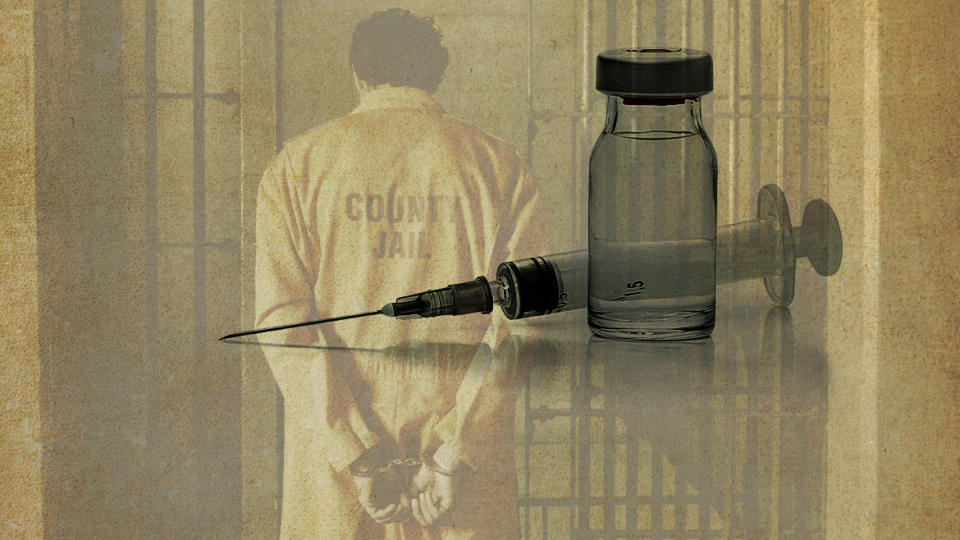Should sex offenders be chemically castrated?
The 360 is a feature designed to show you diverse perspectives on the day’s top stories.

Speed read
What's happening: Alabama Gov. Kay Ivey last week signed a bill into law that will require criminals found guilty of some sex crimes against children to undergo chemical castration before they are granted parole.
Chemical castration involves using medication to lower a person's hormone levels and limit their libido. Unlike surgical castration, it is reversible and does not affect a patient's fertility. Under Alabama's new law, inmates would begin taking the medication a month before being paroled and continue receiving treatment once they're free. Stopping treatment without the state's permission would be a felony.
Several other states have similar laws, although it is optional rather than mandatory in some cases.
Why there's debate: Advocates for chemical castration believe it's an effective way of protecting children from known sexual predators. "If they're going to mark these children for life, they need to be marked for life," said Rep. Steve Hurst, who introduced the bill in the Alabama House of Representatives.
Opponents of the bill say the procedure is barbaric and may violate the Constitution's clause regarding cruel and unusual punishment. There are also concerns about the precedent set by a law that establishes government-mandated medical treatment, especially given the potential side effects. Others argue that changing someone's hormones does not address the true causes behind pedophilia.
What's next: Alabama's new law will probably face a legal challenge on constitutional grounds in the near future, after an individual felon has been ordered by a judge to undergo the procedure.
Perspectives
Ethical concerns are trumped by the need to protect children.
"When evil lurks and innocence is threatened, the right course of action is always to stand on the side of innocence. When a child’s been brutalized and traumatized by a sick-minded adult, it’s not the adult who deserves the top consideration." — Cheryl K. Chumley, Washington Times
Chemical castration does not address the root causes of sexual violence.
"In the same way that removing the hands of a bread thief could theoretically help prevent future crimes, rendering a person’s genitals less virile makes certain acts less feasible. But unlike other therapeutic approaches, chemical castration (or surgical castration, for that matter) does not address the antisocial instincts that often underlie such crimes." — James Hamblin, The Atlantic
One sex offender weighs in on the law.
"As far as the castration, they should do it. For some of those serious guys, that should be done but that kind of abuse is in their mind not in their body." — Michael Weaver to WPMI-NBC News
Chemical castration is more effective when used as part of rehabilitation rather than punishment.
"There are several U.S. states and a number of countries in Europe that use chemical castration for sex offenders but usually it is presented as being used for rehabilitation purposes. ... I think if we start using interventions like this there is a high risk we will abuse them and use it in cases where they are extremely harmful." — Medical ethics expert Thomas Douglas to Insider
The treatment will only be effective with some offenders.
"There are multiple reasons for engaging in sexual offenses, only one of which is pedophilic interest. …[In some cases] lowering their testosterone is not going to solve the problem.” — Forensic psychiatrist Dr. Renee Sorrentino to Vox.
The bill relies on unsound medical science and ignores psychological factors.
"There is a need for a meaningful collaboration between legislative bodies and the scientific-medical communities in order to establish public policies and treatment protocols that can better ensure community safety. In conjunction with that effort, it should be appreciated that people who are sexually attracted to children need and deserve access to appropriate mental health treatment." — Dr. Fred Berlin, The Hill
The bill uses hatred of pedophiles to give the government power it shouldn't have.
"On one hand, screw those monsters, etc. etc. etc. On the other, this is very clearly a human rights violation, and what will begin as a way to punish people who have carried out horrific crimes could one day be expanded to just about any group." — Media Matters editor Parker Malloy, Twitter

